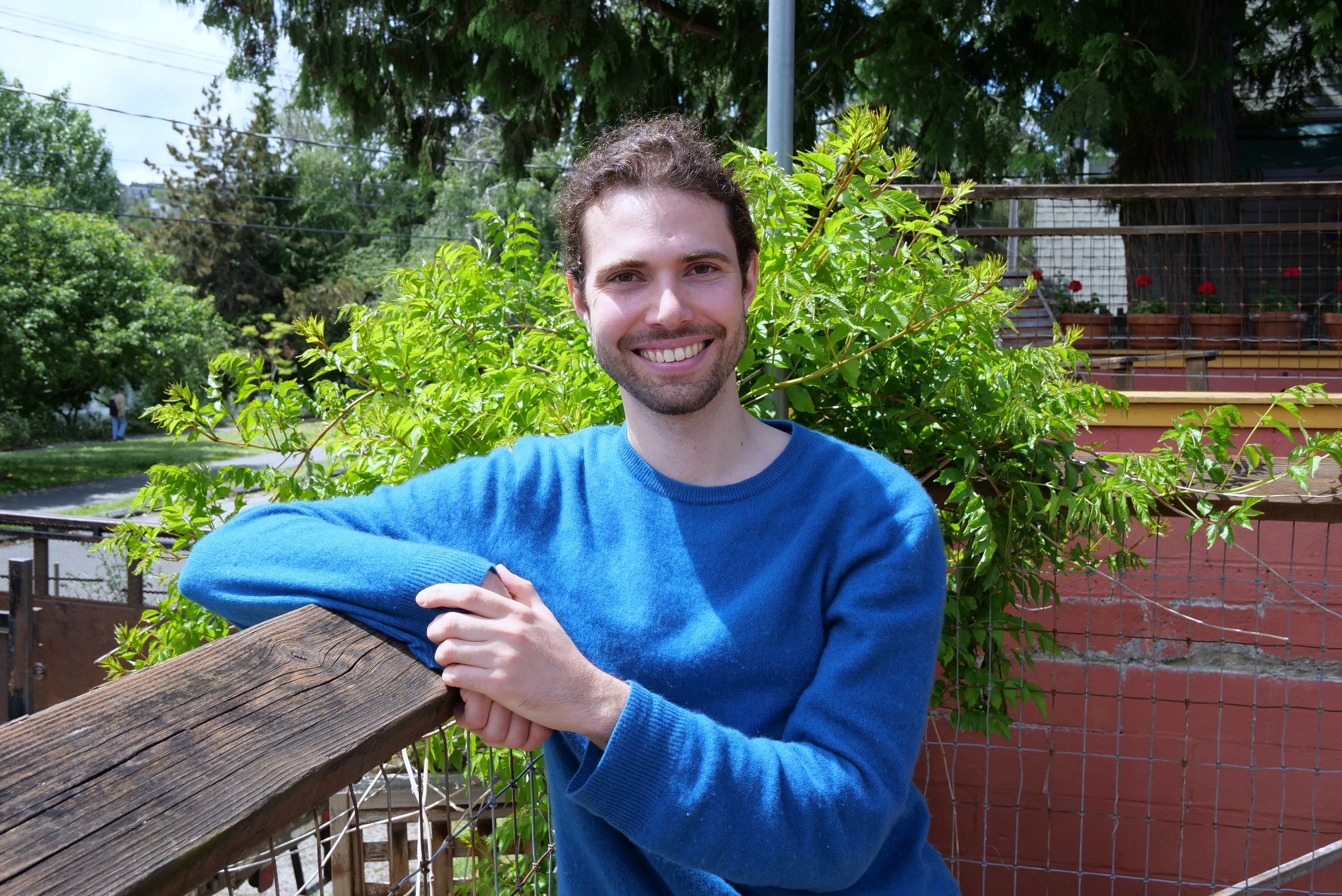
“You need to use your human intelligence. No AI will take this away from you. … You need to just realize how beautiful this is, to be a human. And you will see that you can do so many more things, thanks to this [technology].”
Our guest this week on the GeekWire Podcast is Léonard Boussioux, an assistant professor in the Department of Information Systems and Operations Management at the University of Washington’s Foster School of Business, and adjunct assistant professor at the UW’s Allen School of Computer Science and Engineering.
Boussioux received his doctorate in operations research from the Massachusetts Institute of Technology. His research combines areas including machine learning and AI with a focus on healthcare and sustainability. Last year, he launched a class called “Generative AI in the Era of Cloud Computing” at the Foster School.
Related links and articles:
- Boussioux’s website, including photography and AI art: www.leobix.us
- Foster School: A New Era Of AI And Human Ingenuity In The Classroom
- TEDxMIT Salon presentation: Let Art Be Your Superpower
- TEDxBoston: How to Solve the UN’s Sustainable Development Goals in 5 mins.
- GeekWire: How a photo of OpenAI’s Sam Altman, enhanced by AI, sparked a journalistic debate at GeekWire
- Wall Street Journal: The AI Revolution Is Already Losing Steam
Listen above, and continue reading for highlights from Boussioux’s comments, edited for context and clarity. Subscribe to GeekWire in Apple Podcasts, Spotify, or wherever you listen.
The fundamental appeal of AI: What I like a lot about AI is the fact that it bridges gaps. I like that it’s making everything more multidisciplinary. It used to be that everything was very siloed. You studied chemistry, you studied physics, pure math. I believe that AI can help people come together and work together.
I also love that AI is able to upskill people. I think that AI, because it has some good knowledge in many different topics, can really help people do things that were deemed unfeasible before.
For instance, my business school students, typically they rarely code, if at all. Now, I taught them in just 30 minutes how they can build a website from scratch in coding languages like HTML and CSS. Many of them did not even know those two acronyms. And they all managed to build a beautiful website, thanks to the power of AI.
So this is really the beauty of helping people to be more creative, but also for creative problem-solving.
Using AI to tap into our artistic selves: What I believe in is the fact that us humans have something beautiful. It’s our capability to connect with each other, to build communities, to create. And I believe the best way to create is to tap into our artistic selves.
Our society is not always emphasizing how important this is, to be creative, or that we are all artists. Very often people decide that, being an artist is not for me. I don’t have the time. I don’t have the skills. I believe that, no, every one of us can be artists. And I also believe that AI is an opportunity to help us become more artistic in our daily lives.
On the idea that AI advances are losing steam: I believe, honestly, that AI is going for now in a linear trend. Between GPT 3.5 and 4, it was a very nice improvement. GPT 4o has seen some nice multimodal improvements, nothing much in terms of capabilities of the model.
The exponential part is not necessarily in the tool, but in the humans. You need to use your human intelligence. No AI will take this away from you. You won’t be replaced anytime soon. …
You will need to be creative. You will need to be an artist, to think out of the box, to figure out those little details that nobody else will see. And this is an opportunity to leverage the technology to get you [there] faster or differently or get the right support you need. But you still need to use your brain, ultimately. You need to just realize how beautiful it is to be a human. And then you will see that you can do many more things, thanks to this.
Subscribe to GeekWire in Apple Podcasts, Spotify, or wherever you listen.
Audio editing by Curt Milton.

